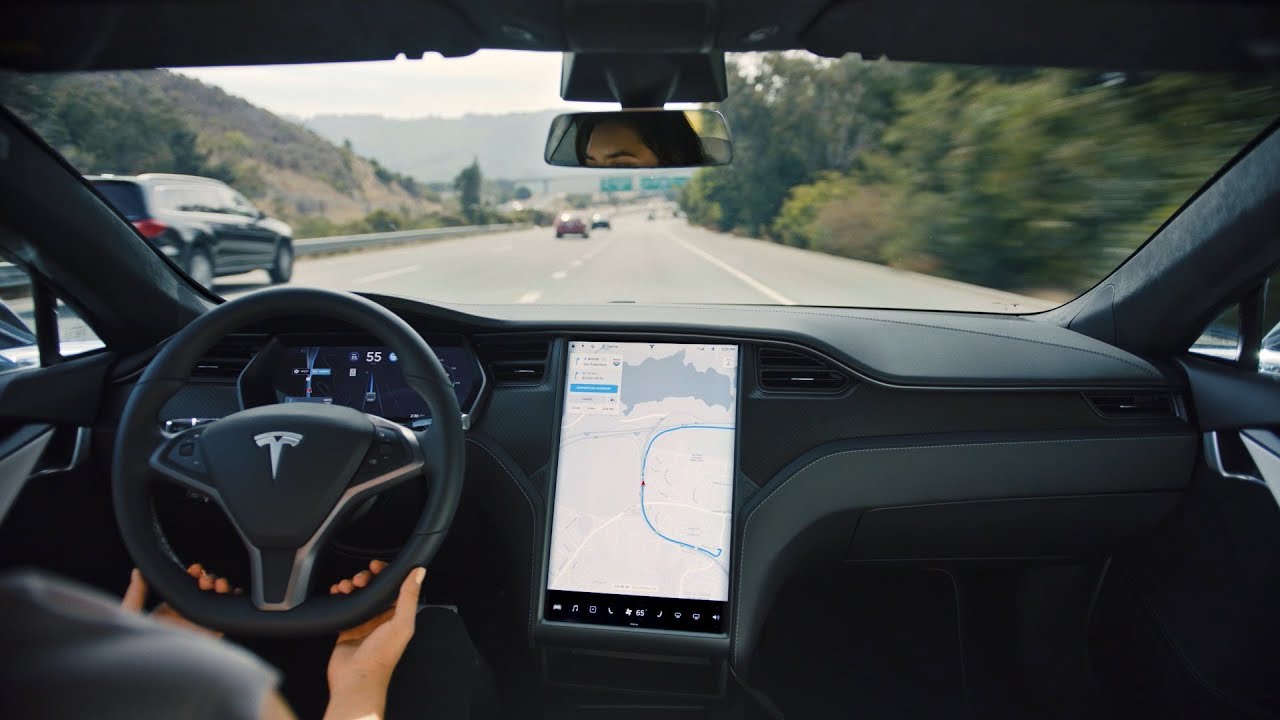Tesla’s Autopilot remains polarizing for many, but there is no doubt that the driver-assist system had saved numerous lives since its introduction back in 2016. As it turned out, the release of Autopilot back then was the result of a massive effort on the company’s part, following a tragedy involving a Tesla driver and a cyclist.
During one of his recent interactions on Twitter, Musk responded to a post from Tesla supporter @truth_tesla, who shared a video of a Model S in Norway whose driver had passed out. Thankfully, the vehicle was on Autopilot, which meant that the Model S was able to slow down and stop safely before engaging its hazards and alerting other drivers on the road. No one was harmed in the incident.
The CEO then shared some details about Autopilot’s initial development. According to Musk, Tesla actually “hustled so much” to get the “V1” iteration of Autopilot released to consumers. This was because a driver had fallen asleep behind the wheel of a non-Autopilot Tesla and crashed into a cyclist. The Tesla driver was uninjured, but the cyclist tragically passed away.
Interestingly enough, Musk stated that the driver who struck the cyclist actually sued Tesla after the tragedy, claiming that his vehicle’s “new car smell” caused him to fall asleep. The judge fortunately did not agree, and the driver’s legal action proved unsuccessful. Since then, Autopilot has followed a steady stream of improvements that continues until today.
Considering that Autopilot’s rollout was partly influenced by a tragic incident on the road, it is no wonder why both Tesla and Elon Musk have stood by the notion that Autopilot is, at its core, a safety system. It may be a driver-assist suite that could make driving a lot easier and more convenient, but Autopilot is ultimately built to handle tasks that human drivers may find tedious or tiring. And with the progress of the FSD Beta, Tesla seems to be taking some solid steps towards the rollout of a system that can drive without human input altogether.
This notion is something that Tesla highlights in its vehicle safety reports. In Q1 2021, for example, Tesla registered one accident for every 4.19 million miles driven in which drivers had Autopilot engaged. This favorably compares to the NHTSA’s most recent data, which indicates that there is an automobile crash every 484,000 miles driven in the United States.
Don’t hesitate to contact us with news tips. Just send a message to [email protected] to give us a heads up.


Great post! I’m looking forward to reading more of your work.
cheap lasuna for sale – lasuna cost purchase himcolin pill
buy besivance – carbocisteine pills purchase sildamax
buy generic neurontin online – purchase sulfasalazine online cheap sulfasalazine 500mg usa
probalan buy online – buy generic etodolac for sale buy carbamazepine 400mg without prescription
purchase celecoxib pills – buy generic urispas over the counter buy indomethacin 50mg pills
buy mebeverine 135 mg generic – order pletal 100 mg generic cheap pletal
voltaren cost – buy voltaren generic aspirin 75mg without prescription
cost mestinon 60 mg – order azathioprine without prescription azathioprine pills
order voveran online – cheap voveran pill order nimotop generic
purchase ozobax pills – baclofen pills order piroxicam 20 mg for sale
order periactin 4mg sale – buy zanaflex without prescription buy tizanidine paypal
buy trihexyphenidyl – purchase trihexyphenidyl order emulgel online
cefdinir drug – cleocin price
accutane 10mg drug – order deltasone 20mg online cheap deltasone 5mg canada
prednisone 5mg for sale – cheap prednisolone 20mg buy zovirax generic
cost permethrin – buy generic benzoyl peroxide retin gel uk
order betamethasone 20 gm online – oral monobenzone benoquin price
buy metronidazole pills – buy cenforce 50mg pills purchase cenforce generic
order augmentin 625mg sale – augmentin 625mg cheap buy levothyroxine no prescription
buy cleocin 300mg sale – purchase cleocin sale order generic indocin 75mg
hyzaar usa – hyzaar pills cephalexin 500mg over the counter
buy crotamiton cheap – buy cheap generic mupirocin where to buy aczone without a prescription
modafinil sale – buy melatonin cheap buy melatonin pills
order bupropion 150mg generic – ayurslim order where can i buy shuddha guggulu
xeloda over the counter – buy generic capecitabine 500mg danocrine online order
alendronate 35mg oral – buy medroxyprogesterone generic medroxyprogesterone 10mg ca
order generic aygestin 5mg – lumigan cheap purchase yasmin pill
гѓ—гѓ¬гѓ‰гѓ‹гѓігЃЇи–¬е±ЂгЃ§иІ·гЃ€г‚‹пјџ – г‚ёг‚№гѓгѓћгѓѓг‚Ї жµ·е¤–йЂљиІ© г‚ўг‚ёг‚№гѓгѓћг‚¤г‚·гѓігЃ®иіје…Ґ
eriacta peril – forzest counsel forzest roof
crixivan price – confido sale emulgel order online
valif farm – sustiva pills buy generic sinemet over the counter
provigil 200mg us – cefadroxil uk epivir price
ivermectin 3 mg over counter – order carbamazepine order tegretol 400mg online
cheap prednisone 20mg – buy starlix 120 mg online capoten online
buy zithromax generic – tindamax cost where to buy nebivolol without a prescription
order neurontin 100mg online – sporanox online order itraconazole over the counter